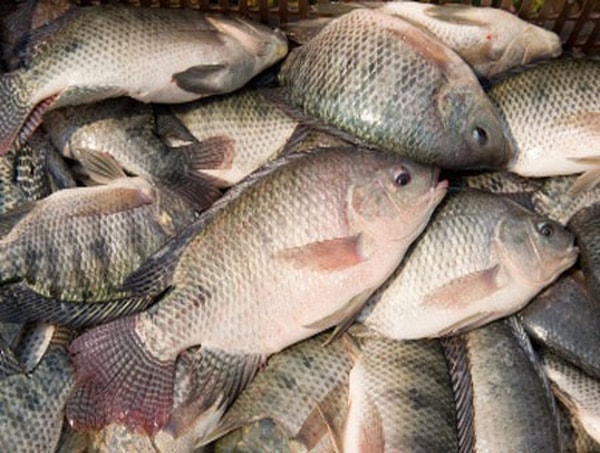Things to keep in mind when eating tilapia to avoid danger.
Tilapia is a very popular fish. However, knowing how to eat it safely is something you should be aware of.
Advantages of tilapia
Tilapia is rich in nutrients, vitamins, and minerals, including a significant amount of protein, fatty acids, selenium, phosphorus, potassium, vitamin B12, niacin, vitamin B6, and pantothenic acid... These substances are very good for the growth and development of the body.
In addition, tilapia contains an impressive amount of protein, accounting for more than 15% of our daily needs, which is why this fish is becoming a very popular choice for many people.
In addition, tilapia contains a lot of protein, which is the main building block of the body and is directly related to the growth and development of organs, cell membranes, and muscles... A lack of protein can cause malnutrition in children.
Tilapia is a high-quality fish with a high selenium content. This is a natural antioxidant that offers many impressive benefits. Studies have shown a direct link between selenium intake and the risk of prostate cancer.
Further research is being conducted on the effects of selenium found in tilapia on other types of cancer.
 |
| Tilapia has many health benefits, but be careful when eating it. (Illustrative image) |
The dangers of eating tilapia raised in unsanitary environments.
However, nowadays tilapia are mainly raised in farms, with very few found in the wild.
In 2009, studies at the U.S. Department of Agriculture examined seafood imported from China and revealed that many farms in China were located in heavily polluted areas.
Most tilapia consumed in the U.S. today is farm-raised rather than wild-caught. Farm-raised fish are typically exposed to 10 times more carcinogenic organic pollutants than wild-caught tilapia.
Furthermore, one of the main components in feed is chicken manure, and processed waste from pigs and ducks is also quite common.
Fish are a common and very important source of Omega-3 fatty acids. Omega-3s are beneficial for health by lowering blood pressure, reducing blood cholesterol, and boosting the immune system.
It also helps prevent arthritis, depression, heart disease, and even cancer. However, according to a 2008 study by Wake Forest University (USA), tilapia contains more Omega 6 than Omega 3 at a ratio of 11/1.
According to scientists, although Omega 6 is also essential for the body, the appropriate ratio of it to Omega 3 should be 2/4.
If the ratio of Omega 6 to Omega 3 in fish is greater than 6/1, it may increase the risk of asthma, arthritis, and other inflammatory diseases in the body.
According to food chemistry engineer Ho Thu Thuy, regardless of whether they are aquatic vegetables or foods like snails, mussels, or even farmed or wild tilapia, if they live in polluted environments contaminated with heavy metals, they will affect human health.
A prominent characteristic of heavy metals in the environment is that after entering the body, they are not easily eliminated but accumulate over time before causing toxicity.
Therefore, if fish species like tilapia become contaminated from the farming environment and are consumed by humans, it would pose a significant threat to human health.
Each type of metal has a different level of impact on humans. For example, with lead, depending on the level of poisoning, it can cause abdominal pain, joint pain, kidney inflammation, high blood pressure, stroke, and severe poisoning can be fatal.
Furthermore, if tilapia live in an environment contaminated with chemicals related to pesticides, dyes, antibiotics, etc., they will also become toxic. If these chemicals remain in the fish and are consumed by humans, it can lead to poisoning.
How to choose between farmed and wild tilapia.
Normally, farmed tilapia and other types of fish are raised in the same batch, meaning the fish are relatively similar in weight.
Looking at a fish tank belonging to a seller, if all the fish are of the same type and look the same, they are most likely farmed. Because farmed fish are raised in smaller ponds or lakes than wild fish, they swim slower and are not as healthy. When eaten, farmed fish have a mushy texture and lack the pleasant aroma.
In the wild, the fish are not all the same size; some are bigger, some are smaller, and they are generally healthier. Buyers may also consider the geographical location; markets near rivers or streams may occasionally have river fish. However, wild fish tend to have firmer, more flavorful, and sweeter meat.
At the same time, we should avoid buying dead tilapia, and people with a history of heart disease should be careful not to eat too much tilapia because it contains omega-6 fatty acids.
According to Gia Dinh.net
| RELATED NEWS |
|---|



